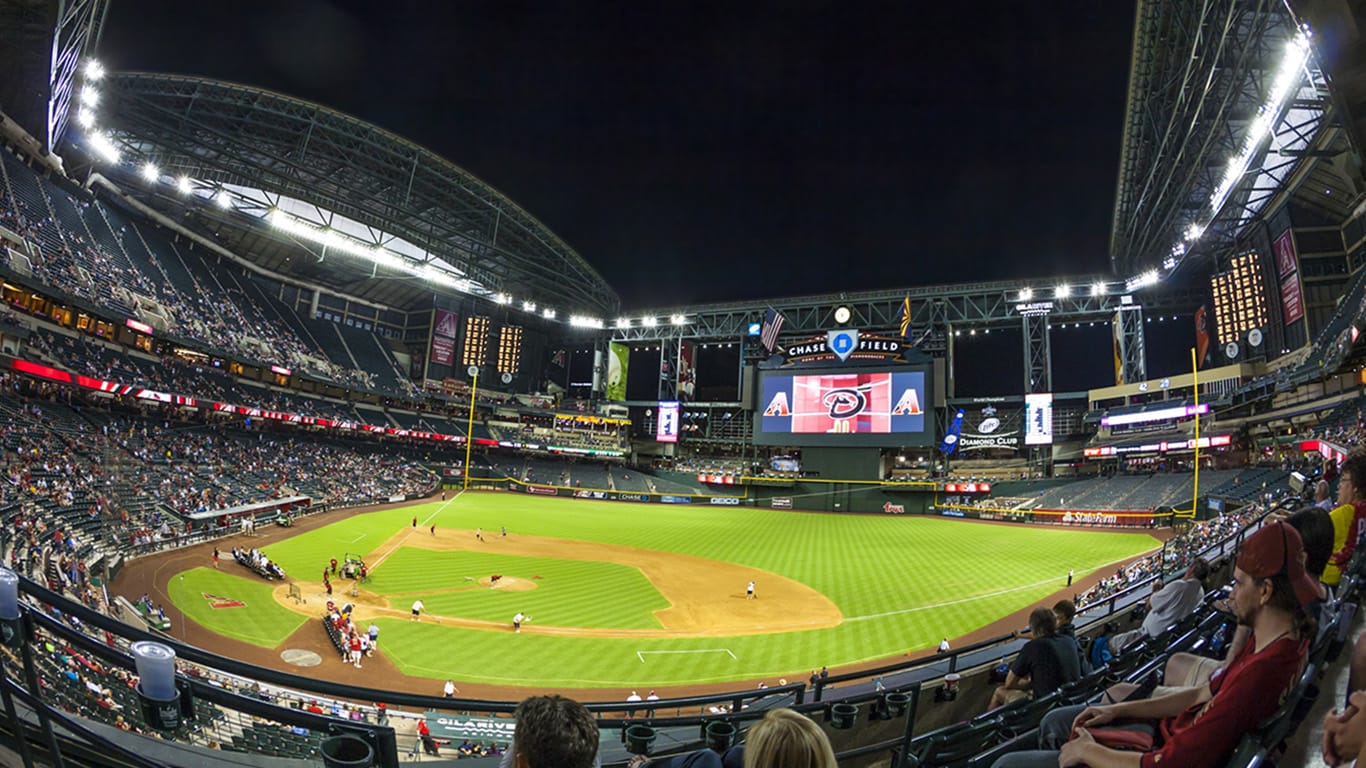On Wednesday, November 1, the Diamondbacks lost the World Series to the Texas Rangers in Game 5, losing 0-5, after a shockingly good season of baseball. This was the first time the Diamondbacks made it to the World Series since 2001 and the first time they were in the playoffs since 2017, but the biggest win may have been recorded by the Phoenix economy. Despite losing in the end, it can be said that the Diamondbacks were the underdogs of the season, recovering from their summer slump and going on to beat some big teams.
MORE NEWS: Diamondbacks honor Most Influential Women in Arizona
In the weeks leading up to this, bars and restaurants in Downtown Phoenix saw a boost in customers and, of course, in sales. To prepare and adjust for the large crowds, establishments usually stock up on staff, but hours were to remain the same after Hobbs rejected Republicans’ request to extend hours for the event.
Chase Field is the fifth largest Major League Baseball stadium, having a capacity of over 48,000, but this isn’t the first time Downtown Phoenix has faced these large crowds, having hosted Superbowl LVII earlier this year, bringing in over $1.3 billion, and the NBA Finals in 2021.
Christine Mackay, Community and Economic Development Director for the city of Phoenix, on Chase Field said, “the average attendance at a season game is just over 24,000, but they also hold things like the World Baseball Classic, they hold one of the bowl games on New Year’s week, there’s lots and lots of events that take place in Chase Field”.
Looking at the economic impact, Phoenix anticipates a revenue of over $10 million per game. Last year’s World Series brought in $78 million for Philadelphia and $68 million for Houston. As of 2022, Arizona’s sports and tourism sector accounted for 6.4% of the state’s economy, contributing $24.2 billion to Arizona’s Real Gross Domestic Product. Over the next decade, the sector expects an annual growth rate of 3%, which not only benefits sales and tourism, but also employment.
Sports and tourism employment in Arizona has made steady growth since 2009 in wages and in people employed until taking a dip in 2020 due to the pandemic. From 2009 to 2022, the amount of people hired increased by 42.7% and wages increased by 65.7%. For the yearly difference from 2021 to 2022, the hiring increase was 18.2% and the wage increase was 11%.
The World Series also increased sports betting, which became legal in Arizona in April 2021.
According to Caesars Sportsbook representatives, out of all the states, Arizona was the most involved in wagering in the first two World Series games. Caesars Sportsbook opened in June 2022 and is located right outside Chase Field and has partnered with the Diamondbacks, making it an attractive sports bar for events, food, sports betting, and drinks. Down the block from the stadium is Fanduel, another sports betting establishment, which opened in September 2021.
In 2022, Arizona wagered $5.5 billion and as of August 2023, $3.2 billion. However, most of these bets are made using the apps. According to the Arizona Department of Gaming, $3.41 million worth of bets were placed in-person at retail locations, accounting for 0.9% of all bets, while $354.62 million were placed using various mobile apps.
These economic impacts will continue to benefit Phoenix as it continues to host major sporting events and gain exposure in this sector. As stated by Mackay, “Downtown Phoenix is a sporting tourism destination today and I would argue with our teams doing well and the remodel on the Suns building and other growth, that’s just going to continue to be enhanced.”




